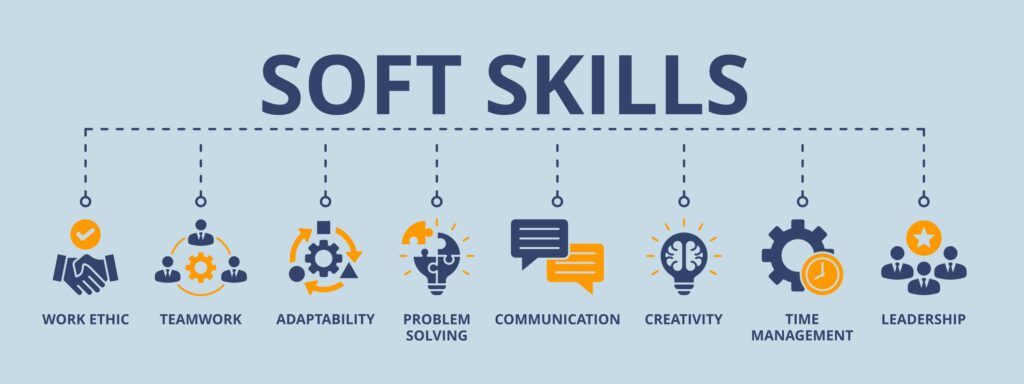
In today’s competitive job market, possessing technical expertise and being a hard worker are undoubtedly crucial. However, there’s another set of skills that often goes unnoticed but plays a pivotal role in shaping one’s career trajectory: soft skills. These intangible qualities encompass communication, emotional intelligence, adaptability, and more, and employers across various industries increasingly value them. So, what exactly are soft skills, why do they matter, and where can you learn them for free? Here is a look at why soft skills matter and how to develop and use them to unlock career success.
Understanding Soft Skills
Soft skills, often called interpersonal or people skills, are the personal attributes that enable individuals to interact effectively with others and navigate various social situations. Unlike technical skills, which can be taught and quantified, soft skills are more subjective and challenging to measure. They encompass a wide range of abilities, including:
- Communication: The ability to convey ideas clearly and effectively, both verbally and in writing.
- Emotional Intelligence: Being aware of and managing one’s emotions while understanding and empathizing with others.
- Adaptability: Flexibility and willingness to adjust to new situations and environments.
- Teamwork: Collaboration and cooperation with colleagues to achieve common goals.
- Problem-Solving: Analytical thinking and creative problem-solving abilities.
- Leadership: Inspiring and guiding others towards a shared vision or goal.
Why Soft Skills Matter
While technical skills may get you in the door, it’s often soft skills that determine your success and advancement within an organization. Here’s why they matter:
- Enhanced Workplace Relationships: Strong soft skills foster better communication, teamwork, and collaboration among coworkers, leading to a more positive work environment.
- Improved Leadership Abilities: Effective leaders possess not only technical expertise but also the ability to inspire and motivate others, which are rooted in soft skills like emotional intelligence and communication.
- Career Advancement: Employers increasingly prioritize soft skills when making hiring and promotion decisions. Individuals with strong soft skills are more likely to be considered for leadership roles and career advancement opportunities.
- Adaptability to Change: In today’s rapidly evolving work landscape, adaptability and resilience are crucial. Soft skills enable individuals to navigate change and uncertainty with ease.
Where to Develop Soft Skills for Free
Fortunately, acquiring and honing soft skills doesn’t always require expensive training programs or workshops. There are numerous free resources available online that can help you develop these essential competencies:
- Online Courses: Platforms like Coursera, edX, and OpenLearn offer a wide range of free courses covering topics such as communication, emotional intelligence, and leadership.
- YouTube Tutorials: YouTube is a treasure trove of instructional videos on soft skills development. From public speaking tips to conflict resolution strategies, you can find valuable resources at your fingertips.
- Podcasts: Listen to podcasts focused on personal and professional development. Many podcasts feature experts sharing insights and practical tips for improving soft skills.
- Blogs and Articles: Explore blogs, articles, and online publications that offer advice and strategies for enhancing various soft skills. Websites like Medium and LinkedIn are excellent sources for curated content on career development.
- Networking Events and Workshops: Attend free networking events, seminars, and workshops in your community. These events provide opportunities to practice and refine your soft skills while expanding your professional network.
Using Your Soft Skills for Career Success
In today’s dynamic and interconnected world, possessing strong soft skills is indispensable for career success and personal growth. While technical expertise may open doors, it’s soft skills that enable individuals to thrive in their roles, lead effectively, and adapt to changing circumstances. By leveraging free resources and committing to continuous learning, you can cultivate and strengthen your soft skills, positioning yourself for greater professional achievement and fulfillment. So, embrace the power of soft skills and embark on a journey of self-improvement that will propel you towards your career goals.
Further Reading
https://hbr.org/2023/05/the-power-of-soft-skills-our-favorite-reads
https://www.dol.gov/agencies/odep/program-areas/individuals/youth/transition/soft-skills
Many openings offer on-the-job training, and are a great way to work on soft skills!

